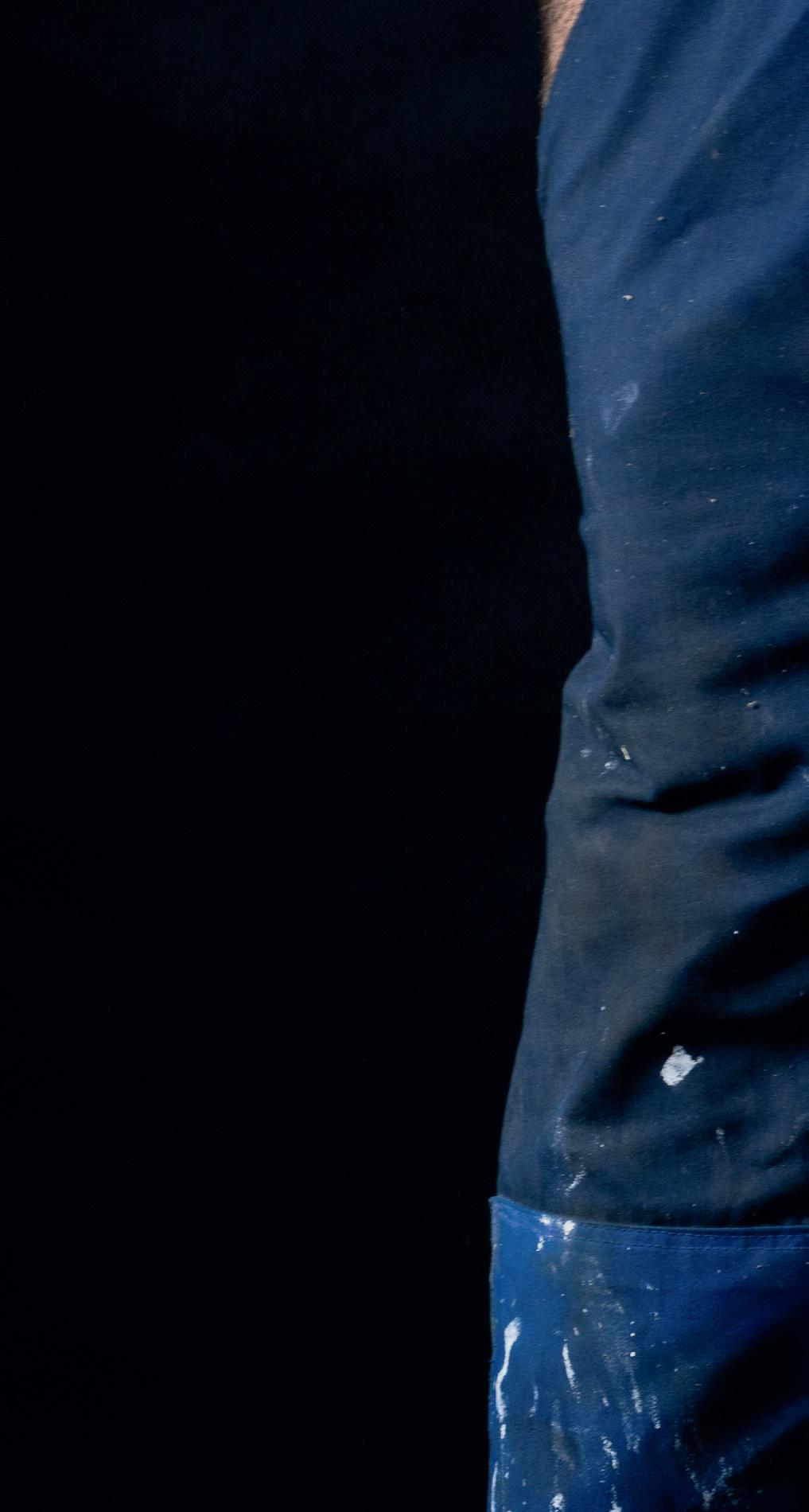
16 minute read
Risk factor drug and alcohol testing
To mitigate the potential risks arising from workers operating under the influence, organisations in the safety-critical mining, construction and transport industries often implement drug and alcohol (D&A) testing protocols. But, are these protocols still necessary during COVID-19, or do the contamination possibilities of D&A tests pose more risks than they allay?
During the coronavirus (COVID-19) pandemic, Australian workers have been hitting the bottle more heavily than usual. With the ongoing stress of the pandemic conditions, we’re turning to booze to ease our anxiety, but it’s a problematic strategy, particularly in those industrial sector roles that already have a high incidence of drug and alcohol misuse or abuse. While less data is available about drug use during COVID-19, it seems reasonable to assume it continues to be an issue, supply difficulties notwithstanding. While it’s important that employers have empathy for employees who have found themselves experiencing increased stress and anxiety due to the pandemic, those organisations that have D&A testing regimens need to continue to uphold them during COVID-19, as the consequences of not continuing D&A testing are too serious to ignore, but it’s important that the testing be conducted hygienically and safely, preferably by professionals, and that workers are treated respectfully in the process.
Consequences of discontinuing D&A tests amid COVID-19 Industry risks The industries that usually conduct these tests are those where an employee who is affected by D&A could pose a significant safety risk to themselves or others in the course of their work. They may be operating machinery, performing manual handling duties or working with the public (such as delivery drivers). When these workers aren’t fully cognisant of what they’re doing, the consequences can be devastating and can include serious injury or potential loss of life, for them or someone else. A worker who is under the influence of drugs or alcohol may also be less vigilant when it comes to hygiene precautions such as frequent handwashing, social distancing and the wearing of appropriate personal protective equipment (PPE).
To keep the virus contained, everyone needs to be taking very conscious and deliberate steps to protect themselves and others. This requires diligence, attention and thought, and alcohol or other substances can compromise a worker’s ability to pay attention and give the requisite consideration to their actions. In this same vein, significant drug or alcohol use may possibly affect a worker’s ability to recognise and appreciate that they have symptoms of coronavirus, or even obscure those symptoms. As such, they could unknowingly spread the virus throughout their community, adding to the already concerning levels of community transmission cases. As well as compromising the safety of those around them, workers impacted by alcohol may also put themselves at additional risk. Personal risks Research has shown that frequent drinking lowers the immune system. So, if someone is a heavy drinker, they are actually more susceptible to infection and at greater risk of contracting a virus like COVID-19.
RISK FACTOR DRUG AND ALCOHOL TESTING DURING COVID-19
Paul Molinia, General Manager of Rehabilitation (NSW, ACT, SA & Qld), Recovery Partners
We also know that heavy use of alcohol increases the risk of acute respiratory distress syndrome developing from COVID-19, which is a very serious illness. While maintaining D&A testing during the pandemic is important, it’s also vital that those workers subject to tests are consulted about how it will be conducted safely.
Responsibilities to conduct testing safely Keep workers informed Workers have the right to be informed how testing procedures in COVID-19 will take into account the very real risks of infection transmission posed by this sort of contact. They should be reassured that their employer has taken the necessary steps to adjust the practice of testing so it includes the additional hygiene measures that COVID-19 necessitates. Choose reputable providers D&A testing should be conducted by reputable providers, and in conjunction with pre-employment assessments and random testing protocols, providers should have updated their testing methods in light of COVID-19 transmission concerns. There should be a focus on minimising the potential of droplet contamination, particularly with breath testing, which can be achieved by using a testing machine
with a mouthpiece adaptor and one-way valve so that any droplet contamination is contained within the mouthpiece. The assessed individual should then dispose of the mouthpiece themselves. The testing equipment must be disinfected between every sample and assessors must adhere to all relevant precautions like maintaining social distancing and wearing PPE while they conduct the tests.
COVID-19 compounded existing concerns Australians are already concerned about how our culture normalises drinking to excess and about the individual, community and interpersonal implications of this. The research on the catastrophic physical and mental health effects of sustained drug and alcohol use is clear. We also know that workers consuming excessive alcohol not only affects their work performance, but also comes at a substantial cost to Australian businesses, with billions of dollars lost in productivity and to absenteeism every year. We’ve already seen the economic uncertainty and job insecurity the pandemic has brought about, and nobody wants to see this compounded even further. D&A use among workers was a problem prior to the pandemic, and the stress of the pandemic has amplified it. As such, discontinuing D&A testing now would be completely counterproductive.
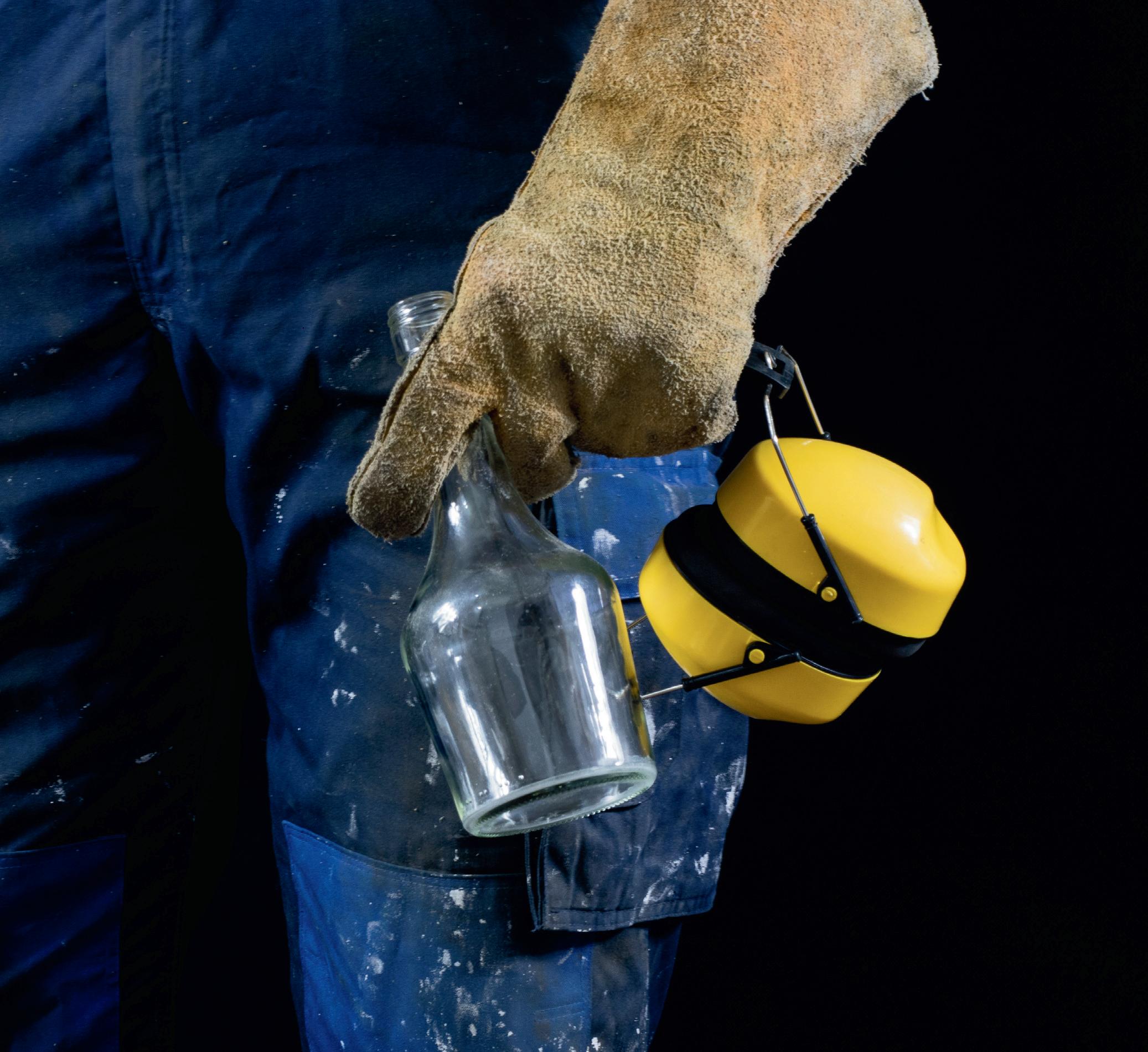
Employee wellness programs can help Ideally, organisations should be looking at strategies to help their employees limit or mitigate the effects of their alcohol consumption on both their health and their work, regardless of whether crisis events like COVID-19 are co-occurring. An employee wellness program (EWP) can be a very effective way of achieving this. The idea of an EWP is that it’s proactive rather than reactive. It encourages and facilitates employees to maintain good health all the time, rather than just dealing with the effects of ill health.
A workplace wellness program should include measures to promote good health physically and psychologically, and incorporate training that teaches participants to recognise and manage stress without using alcohol or drugs. When employees are given assistance and encouragement to make healthier lifestyle choices, both they and their employers benefit. And when crises like COVID-19 occur, the framework is already in place for giving people the support they need to cope with elevated stress.
Variomatic safety glasses The uvex sportstyle variomatic safety glasses are suitable for frequent movement between light and dark work areas. When wearers go from inside to outside, the lenses darken within 10 s, from 70% light transmission to around 32% light transmission. The lenses then lighten up within 30 s when wearers go back inside, versus other lenses that can take up to 2 min. The switching time enables the wearer to adjust to their surroundings quickly.
Available in the uvex sportstyle model and weighing 23 g, the lightweight and balanced spectacles provide extended wearer comfort with optimal fit. The adjustable and soft nose bridge is also flexible, for a comfortable and customised ergonomic fit. The safety spectacles have a supervision excellence coating, making them anti-fog on the inside and scratch-resistant on the outside.
UVEX SAFETY AUSTRALIA LIMITED PARTNERSHIP
www.uvex-safety.com.au

Flexible fit earplug The 3M E-A-R Flexible Fit Earplugs are designed for insertion into the ear canal to help reduce exposure to hazardous levels of noise and loud sound. The earplugs are available in corded and uncorded form. When properly selected and worn according to the user instructions, the earplugs may be used for protection against high noise environments, providing effective protection across most noise frequencies in a wide range of industrial and leisure environments.
The earplugs have a range of applications, including automotive, construction, heavy engineering, metal processing, textile manufacturing, woodworking, and chemical and pharmaceutical manufacturing.
The earplugs are re-usable for up to two weeks when following wash and care instructions. Their foam encapsulated design means total earplug (stem and tip) are made with 3M patented washable foam, which is resilient and made of predominantly water-resistant closed cell TPE. The conical shape of the earplug and its soft conforming form provide a comfortable fit. The earplugs do not require roll-down, which helps keep them clean during fitting. This, along with the firm yet flexible fitting stem, means the earplugs can be inserted and removed easily, even when wearing gloves.
The earplugs are compatible with the 3M E-A-Rift Dual-Ear Validation System and have been produced to comply with the requirements of the Australian/New Zealand Standard AS/NZS 1270:2002, under an agreed production certification scheme operated during manufacture in accordance with the SAI Global Standards Mark Program.
3M Safety & Graphics
www.3M.com.au/ppesafety
Clip-on nylon insert Grate Cleat makes a clip-on nylon insert for open metal grate flooring to reduce pedestrian slips on stairs and walkways that are used extensively in industry. This flooring has been a primary choice when light, air and liquids need to pass through it. But when it is wet or worn those areas can be notoriously slippery for personnel. Trips, slips and falls conservatively make up approx 12%–15% of accidents in industry. To address these problems this International Patent pending non-slip cleat can be installed, clipping in place in seconds creating double row extra traction in the areas that need it. This eliminates the cost of replacing or repairing the grating in worn areas and greatly reducing the ‘slippery when wet’ problem in others while still allowing light, air and products to pass through it as intended. They are made bright yellow, making stair edges or areas that people need to take care on very noticeable. They are made from a wear-resistant, flameretardant, UV-stabilised polymer, which is very strong and capable of withstanding a wide range of acids and alkaline, oils and petrol without corrosion or effect.
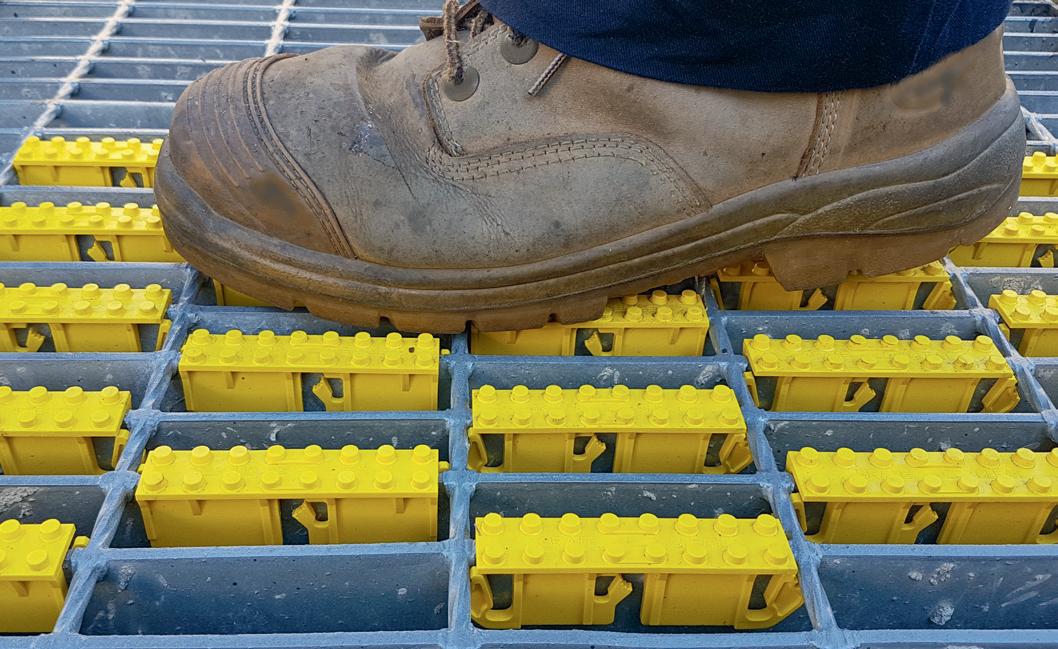
Grate Cleat Pty Ltd www.gratecleat.com
COVID-19 touchless check-in app SafeEntry Australia is a community-driven COVID-19 touchless check-in app with automated contact tracing and alerts. Rather than using GPS or Bluetooth technology, which often exchanges geolocations between devices, the app uses QR Code technology for businesses to check in visitors anonymously.
To do this, business owners must register their venue with SafeEntry Australia, which will then provide a unique QR code for their venue. When visitors arrive at their premises, they can scan the code — which can be placed at the front entrance — on their smartphone or tablet, to facilitate a quick, touchless check-in. The business receives an instant app alert if a patron is confirmed COVID-19 positive.
The app also enables users to check in individually with family, friends or work colleagues, by scanning a person’s unique QR code when they meet up. Users can also download individual QR codes for various locations, such as their home and workplace — even their car — by registering these locations within the app for people to start scanning when they enter these locations. Once a QR code is scanned, the device exchanges an anonymised ID, which is stored in encrypted form in Australia-based data centres only. If a user declares they are infected with COVID-19, the app will notify all people and centres the user has scanned within the last 14 days.
The app has been developed through a collaboration between Apiro, an Australian data platform technology specialist, and Mountain Pass, an Australian mobile development and integration company.



SafeEntry Australia
www.safeentry.com.au
CASE STUDY Australian-based manufacturing strengthens safety credentials
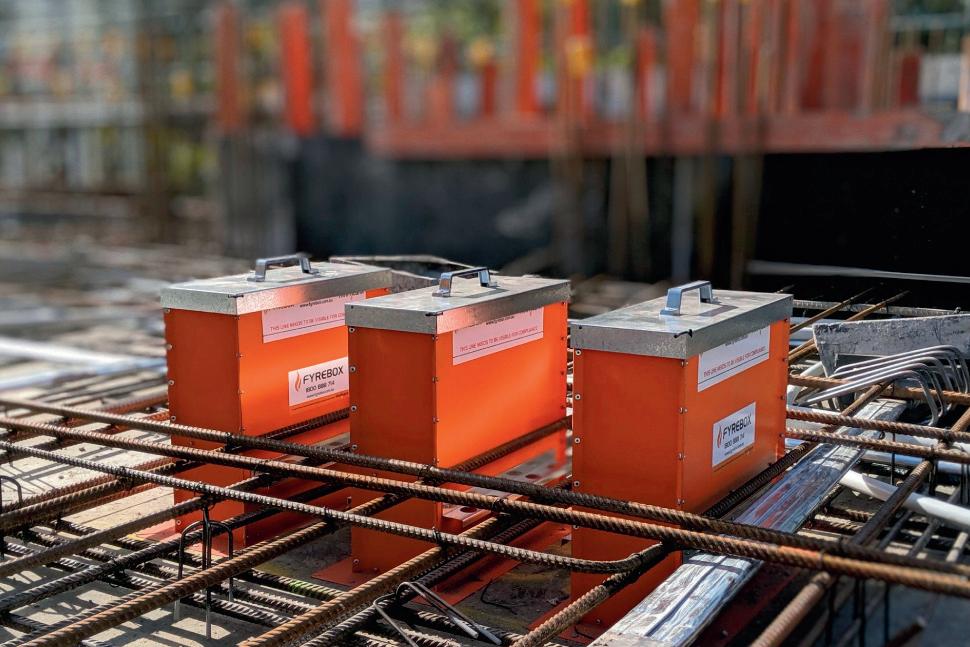
The Australian Made, Australian Grown logo, the registered certification trademark, is a marker of quality, and has been central to the Trafalgar Group’s manufacturing operations. The Australian Made logo is featured on the company’s range of access panels, pallet systems, store-safe boxes and the patented and award-winning FireBOX range, and has helped strengthen confidence in the company’s safety credentials. “The logo gives our customers confidence that an independent body is verifying the products, so they really are Australian Made,” Trafalgar’s owner, John Rakic, said. “It assures buyers that the products are manufactured to Australian high standards and suitable for our conditions.” Rakic purchased the business and rebuilt the company’s Australian manufacturing operations in 2009, though the business dates back to 1945.
“The Trafalgar story is one of innovation and a stubborn ability to survive and thrive,” Rakic said. “When we purchased the business, it was fundamental for us to keep innovation and product manufacturing here in Australia.” Australian owned and operated, Trafalgar now operates three sites across Australia, in South Granville, NSW; Ingleburn, NSW; and Brendale, Queensland, employing more than 70 staff. “My current goal is 100 employees,” Rakic said. “Strengthening manufacturing operations in Australia is beneficial on so many levels. Not only are we providing local jobs, but we are also investing in research, development and domestic manufacturing facilities. In Australia, we have complete control over the manufacturing process and can ensure all our products are made for Australian conditions and high standards.” Trafalgar’s products have carried the Australian Made logo for many years, showing customers that the company manufactures in Australia, employing and investing in local talent. According to Trafalgar, the company is committed to finding solutions for its clients, using its technical expertise. In 2018, the company’s FireBOX won the Australia Institute of Refrigeration Air Conditioning and Heating’s (AIRAH) Product of the Year Award. “The AIRAH Awards recognise stand-out projects, people and products of the Australian HVAC&R industry,” Rakic said. “And Trafalgar are ecstatic that the FireBOX family won the Product of the Year Award for 2018. We are dedicated to delivering the highest standard products, systems and solutions that exceed our customer’s expectations.” According to Trafalgar, the company intends to continue to grow and innovate new Australian Made products, with the Australian Made fire rated access panel, FyreSHIELD, released in July 2020.
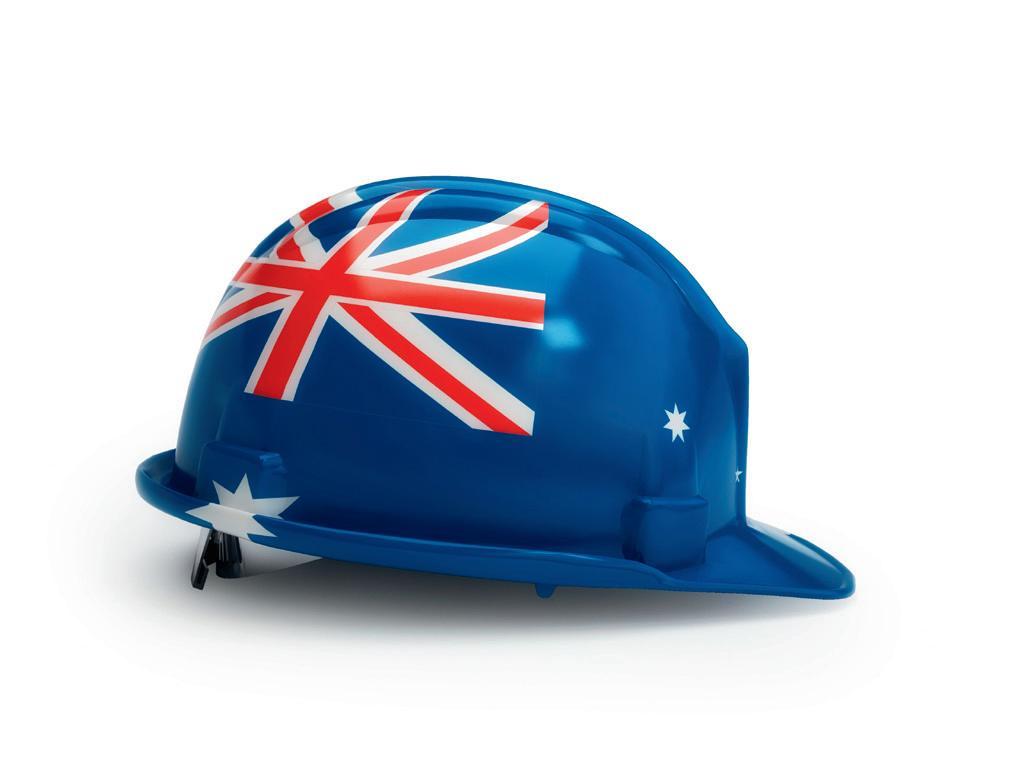
Trafalgar Group tgroup.com.au
Safety Gate Locks
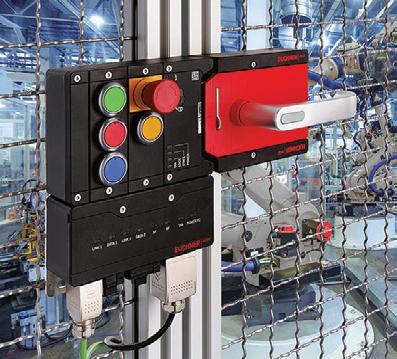
Safety Light Curtains
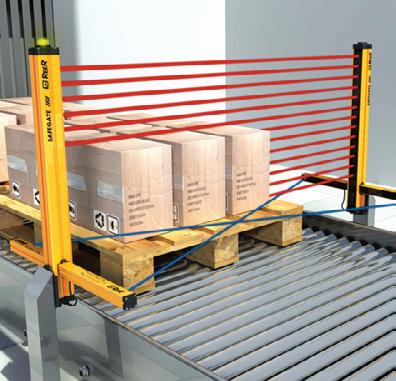
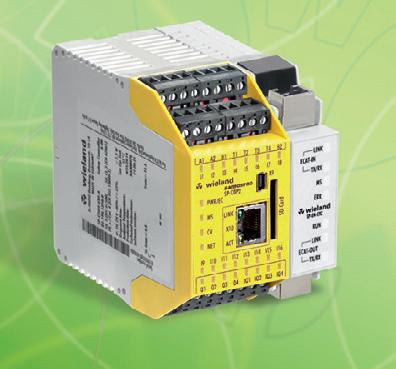
Safety Relays
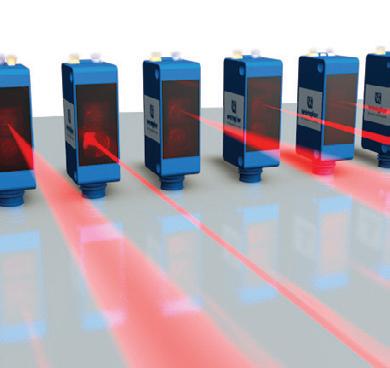
Sensors
We o er a wide range of world-class safety products! www.treotham.com.au | 1300 65 75 64 | info@treotham.com.au Australian Owned & Managed
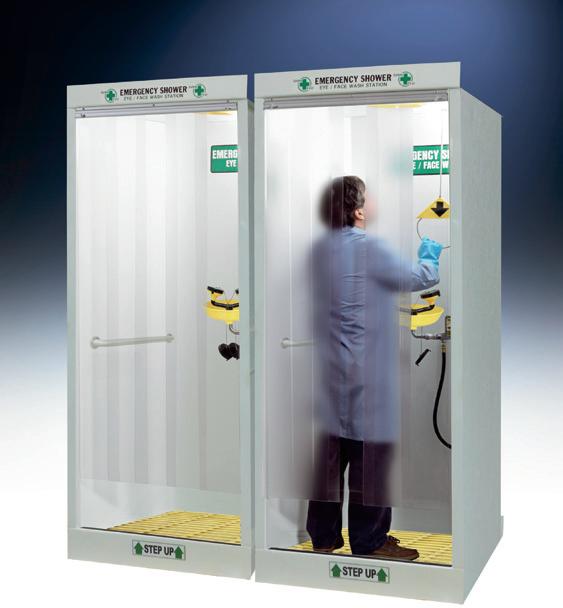
Gas detection controller The MGS-402 dual-channel gas detection controller from Bacharach enables ASHRAE 15, EN 378 and CSA B52 safety compliance for refrigerant, toxic and combustible gas detection applications. The system is designed for safety compliance in mechanical rooms, cold storage facilities, walk-in freezer and cold room applications to -40°F/C.
The MGS-402 is part of the MGS-400 series gas detectors that connect through Modbus to up to two remote MGS-410 gas detectors at up to 1000′ (305 m). The MGS-402 is powered by 110–240 VAC and provides three 10 A output relays (fault, low alarm, high alarm) to initiate auxiliary ventilation or restrict refrigerant flow. The MGS-402 also provides two analog outputs for interface to a BMS or fire/safety panel packaged in an IP66 enclosure. Upstream Modbus connectivity enables remote configuration and communication with building management systems.
The MGS-402 has a built-in audible alarm and high-visibility visual alarm that eliminates the need for an external horn/strobe in close proximity. The remote silence input enables silencing the alarm from outside the monitored environment. Configuration of the MGS-402 is simple and intuitive, reducing installation time.
Bacharach
https://blog.mybacharach.com Emergency safety shower decontamination booth The Laboratory Applications Emergency Shower Booths from HEMCO are available with finished side exterior panels. HEMCO decontamination booths are fully assembled and ready for installation to water supply and waste systems.
When time is of the essence, after an exposure to a hazardous chemical substance, any delay, even for a few seconds, can result in serious injury. OSHA and ANSI require that emergency showers be located within 10 seconds’ walking distance from the hazardous site location.
The shower is moulded one-piece seamless of chemical-resistant fibreglass and is equipped with a pull rod activated shower and push handle eye/face wash for immediately drenching of personnel that have been exposed to hazardous chemicals. The shower is equipped with frosted front strip curtains, interior grab bars, raised deck grating and bottom or rear drain outlet. It is compliant with ANSI and OSHA requirements.
HEMCO Corporation
www.hemcocorp.com

Cut-resistant glove The Aquila RE05F glove is cut-resistant and double-coated with foam and full flat nitrile, which provides abrasion resistance. This is achieved with 100% cut-resistant yarn throughout the glove (not just on the palm), followed by a two-stage foam and flat dip process, making the glove waterproof and chemical resistant, while maintaining a good grip and dexterity to suit general-purpose usage. The RE05F glove represents Aquila’s purpose-designed personal protection approach for the waste processing and recycling industries, where the range of risks varies widely from process to process. Glove development for these applications makes life safer and more comfortable for operatives — in the case of the RE05F this is typically in a picking role at the conveyor belt stage where it provides extra protection from fast moving objects.
Related products for the waste processing/recycling industries include Aquila’s impact protection range featuring TPE (thermal plastic elastomer) on the back of the hand and fingers for protection against fast moving hard/sharp objects at picking stations on conveyor belts. Good examples are the TOG4B glove with genuine Alkimos cut 4 yarn providing full cut resistance throughout the glove. An additional nitrile coating with sandy finish aids grip levels in both wet and dry environments, with good oil and chemical resistance. The sister TOG6W includes an extra comfortable brushed liner for added warmth — suitable for temperatures down to -30°C.
Aquila
www.aquilaglove.com
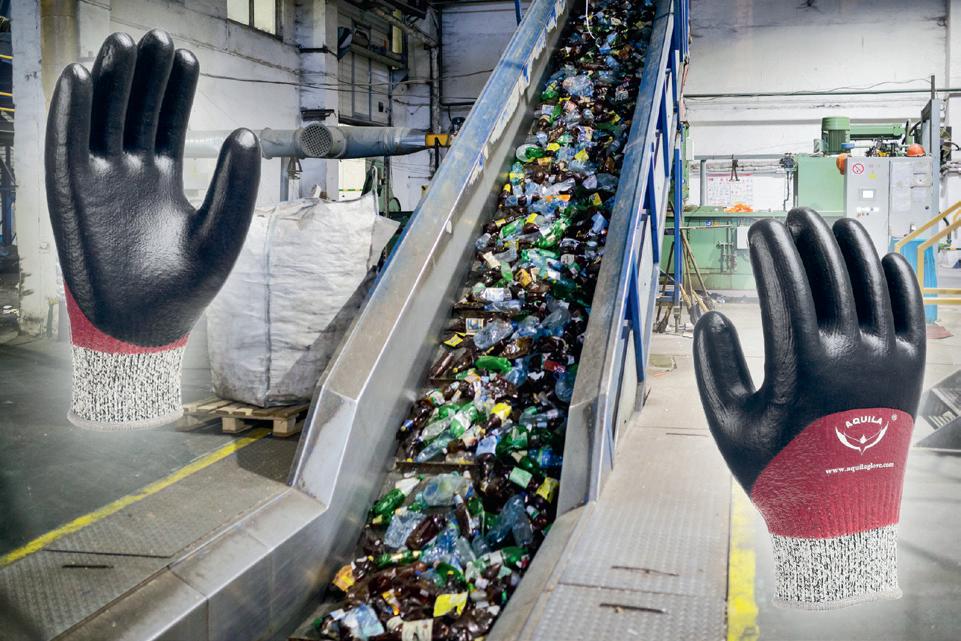
Pneumatic Vacuums Guardair New Stock has arrived!
Liquid Transfer
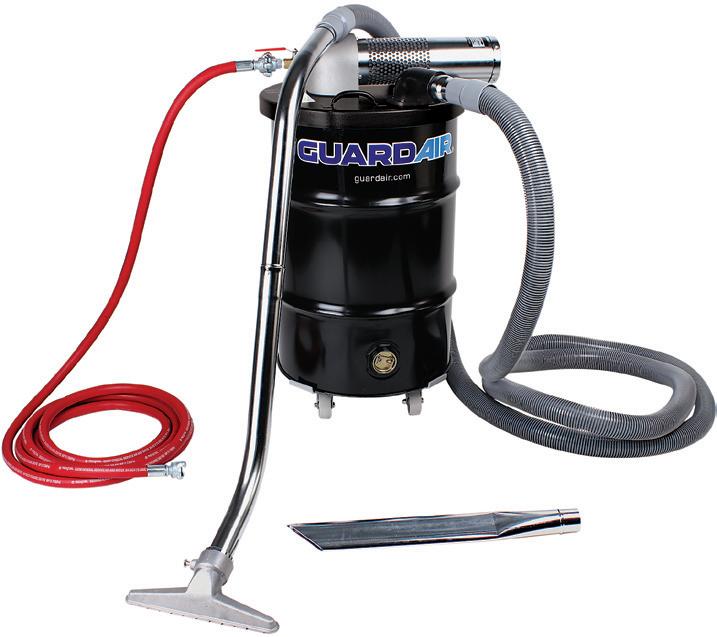
HEPA Filtration
Generating Heads 30 gal (114 Litre) Drum Vacuum Kit Model N301BC shown Atex Certifi ed
Distributor enquiries welcome 03 9503 0550
sales@knightpneumatics.com.au www.knightpneumatics.com.au
Modular signalling column The A7 signalling columns from Leuze are modular and offer flexible configuration in a 70 mm-diameter housing. The clear lens modules are designed with LED technology to ensure a long lifetime, offering distinct visibility in sunlit areas. The functions for the signalling columns are blinking or steady light and can be achieved over all types of PLCs. An automatic electrical connection using a bayonet lock system with tension spring technology between the modules makes the signal column easy to use.
The signalling columns are available with or without a buzzer. For single-sound buzzer modules (up to 105 dB), options are steady sound, pulsing sound or potentiometer for adjustment of volume. For multiple-sound buzzer modules, options include eight different sounds, sounds adjustable by dip switch and a potentiometer for volume adjustment.
The pins of each lens are connected to the colour, not to the position. This allows the operator to easily change the order of the modules. Three different pole lengths (100, 250 and 400 mm) are available. A pre-assembled tower light with a 100 mm base in red, orange or green is also available.






